Uncategorized
-
 Chemistry
ChemistryMolecular cage traps rare gases
Organic compound could cull valuable xenon from the air and detect cancer-causing radon in homes.
By Beth Mole -
 Life
LifeChemical evidence paved way for discovery of early life
The discovery in 1964 of compounds related to chlorophyll in billion-year-old rocks pushed back the timing of life’s origins.
-
 Environment
EnvironmentWild monkeys near Fukushima have low blood cell counts
Primates near the ill-fated nuclear power plant may have been affected by radiation.
By Beth Mole -
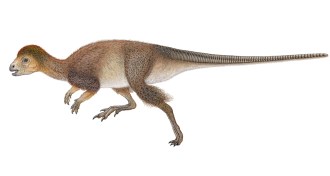 Paleontology
PaleontologyFeathered dinosaurs may have been the rule, not the exception
Newly discovered fossil suggests feathers may have been common among all dinosaur species.
By Meghan Rosen -
 Materials Science
Materials ScienceWeird materials could make faster computers
Topological insulators could speed up how computers switch between 1s and 0s.
By Andrew Grant -
 Ecosystems
EcosystemsMoose drool can undermine grass defenses
Saliva from moose and reindeer sabotages plants’ chemical weaponry.
By Susan Milius -
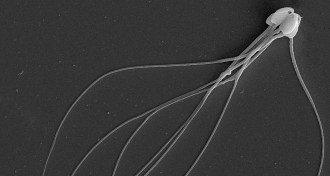 Life
LifeMouse sperm parties make for straight swimmers
Mouse sperm hunt for eggs in packs, but grouping doesn’t boost speed. Instead, gangs of the reproductive cells move in straighter lines.
By Nsikan Akpan -
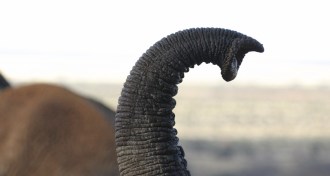 Animals
AnimalsElephant’s big nose wins most sensitive sniffer
A genetic survey reveals that African elephants harbor more smell sensors than any other known animal.
By Nsikan Akpan -
 Genetics
GeneticsHints about schizophrenia emerge from genetic study
From thousands of genomes, researchers pinpoint dozens of DNA changes that may underlie schizophrenia
-
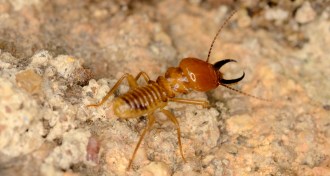 Animals
AnimalsTermite soldiers locate battles with vibrational clues
To locate invasions, termite soldiers listen for millisecond-long delays in vibrational distress signals sent out by other soldiers.
By Susan Milius -
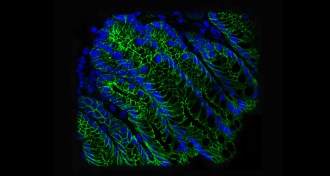 Health & Medicine
Health & MedicineCarbs and gut microbes fuel colon cancer
Western nations experience high levels of colon cancer, and carbo-loading gut microbes might explain why, says a new study in mice.
By Nsikan Akpan -
 Earth
EarthSandstone structures form without cement
Lasting sandstone structures form when weighed-down sand locks into stable formations, researchers find in laboratory experiment.